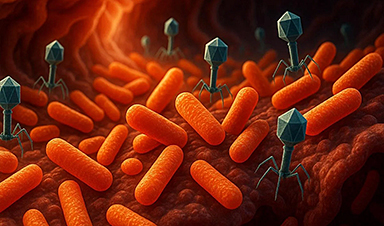A shingles shot may do more than prevent rash — it could help shield the aging brain from dementia, according to a landmark study using real-world data from the UK.
A routine vaccine could offer more than protection from varicella-zoster virus — it could help delay or prevent dementia, according to a robust natural experiment conducted by Stanford researchers and published in the journal Nature. In a recent study, a research team at Stanford University reported that the herpes zoster (shingles) vaccine may lower the risk of developing dementia, offering a potential new tool in the fight against cognitive decline.
Link between herpesviruses and dementia
For years, scientists have explored potential links between neurotropic herpesviruses and dementia. Some evidence suggests that infections caused by these viruses may contribute to neurodegeneration. While vaccination is commonly used to prevent infections, emerging research indicates that vaccines, especially live-attenuated ones, can have broader effects on the immune system, sometimes influencing conditions unrelated to the targeted disease.
However, previous studies examining the relationship between vaccines and dementia have struggled with a key challenge — distinguishing correlation from causation. Many have simply compared dementia rates between vaccinated and unvaccinated individuals, but this approach is prone to bias. Furthermore, factors such as personal health awareness, access to healthcare, and even cognitive ability can influence whether someone gets vaccinated, making it difficult to isolate the true effect of the vaccine.
About the study
In the present study, the researchers utilized the vaccine eligibility rules in Wales, United Kingdom (U.K.), to evaluate the impact of the herpes zoster vaccine on dementia risk. In the U.K., the eligibility for the herpes zoster vaccine was determined solely by birth date. Those born on or after September 2, 1933, were eligible to receive the vaccine, while those born just before this date were not.
This provided the researchers with a unique opportunity to study the vaccine’s effect on dementia risk, as individuals born just a few weeks apart are unlikely to differ in any meaningful way in other aspects of life, except for their access to the vaccine. This rare policy feature enabled researchers to apply a regression discontinuity design, simulating a natural experiment that is highly resistant to confounding. The authors also confirmed their findings using a difference-in-differences instrumental variable (DID-IV) approach, further reinforcing the robustness of their causal claims.
By analyzing large-scale electronic health records, the researchers could compare the long-term dementia risk between these two groups while minimizing confounding factors. The findings were corroborated in a secondary analysis of dementia-related deaths across England and Wales, further strengthening the causal inference. The study used regression discontinuity design, a statistical technique for determining causal relationships, and analyzed data from a seven-year follow-up period.
Major findings
The study found that receiving the herpes zoster vaccine was associated with a 3.5 percentage point reduction in dementia diagnoses over seven years, which translates to a 20% relative decrease. This estimate accounts for the fact that not all individuals who were eligible actually received the vaccine. The protective effect was stronger in women, reaching statistical significance, while the findings in men were inconclusive due to wider confidence intervals.
To confirm their findings, the researchers conducted a separate analysis using death certificate data. This secondary analysis supported their initial conclusions, showing that eligibility for the herpes zoster vaccine reduced dementia-related deaths by approximately 5% over nine years.
Beyond dementia, the study also confirmed that the vaccine significantly reduced the occurrence of shingles, consistent with clinical trial data. However, the observed reduction in dementia risk could not be fully explained by a decrease in shingles cases alone, suggesting that other mechanisms might be at play. Notably, the reduction in dementia incidence only became evident more than one year post-vaccination, supporting theories of long-term immune modulation.
The researchers explored several potential explanations for the vaccine’s apparent protective effect. One hypothesis was that the vaccine helps suppress reactivations of the varicella-zoster virus, which causes shingles. Some studies have suggested that such viral reactivations may contribute to neuroinflammation, a key factor in dementia development.
Another potential mechanism suggested a broader immune-modulating effect of the vaccine. Live-attenuated vaccines, like the herpes zoster vaccine, can stimulate the immune system in ways that extend beyond their primary target. This immune boost may help the body combat other infections or neuroinflammatory processes linked to dementia, potentially via mechanisms such as trained immunity or heterologous adaptive immunity. The study also explored how prior influenza vaccination and autoimmune conditions may modify the vaccine’s effect, supporting the hypothesis that broader immune modulation could contribute to dementia protection.
While these findings are compelling, the researchers acknowledged several limitations. One challenge was the potential under-detection of dementia in health records, as not all cases are formally diagnosed. The study also focused on a specific age group, making it difficult to apply the results to younger populations.
Another important consideration was that the study examined only the live-attenuated herpes zoster vaccine. Importantly, the study focused on the live-attenuated vaccine Zostavax, as the recombinant vaccine Shingrix was introduced only after the study period ended. It is unclear whether the newer vaccine would have the same effects on dementia risk.
Implications and conclusions
Dementia remains one of the most pressing public health challenges worldwide, with no cure currently available. If further research confirms that vaccines can reduce the risk of dementia, this could open up new avenues for prevention. If validated in other settings, the shingles vaccine could represent one of the most effective and cost-effective preventive strategies for dementia. Furthermore, given the widespread availability and safety profile of the herpes zoster vaccine, these findings suggest a promising, low-risk intervention that could potentially help millions of people.
While further research is needed to understand the exact mechanisms at play, this study provides compelling evidence that the herpes zoster vaccine may do more than just prevent shingles — it may also help protect the aging brain.
- Eyting, M., Xie, M., Michalik, F. et al. (2025). A natural experiment on the effect of herpes zoster vaccination on dementia. Nature. DOI:10.1038/s41586-025-08800-x https://www.nature.com/articles/s41586-025-08800-x
News
Scientists Flip a Gut Virus “Kill Switch” – Expose a Hidden Threat in Antibiotic Treatment
Scientists have long known that bacteriophages, viruses that infect bacteria, live in our gut, but exactly what they do has remained elusive. Researchers developed a clever mouse model that can temporarily eliminate these phages [...]
Enhanced Antibacterial Polylactic Acid-Curcumin Nanofibers for Wound Dressing
Background Wound healing is a complex physiological process that can be compromised by infection and impaired tissue regeneration. Conventional dressings, typically made from natural fibers such as cotton or linen, offer limited functionality. Nanofiber [...]
Global Nanomaterial Regulation: A Country-by-Country Comparison
Nanomaterials are materials with at least one dimension smaller than 100 nanometres (about 100,000 times thinner than a human hair). Because of their tiny size, they have unique properties that can be useful in [...]
Pandemic Potential: Scientists Discover 3 Hotspots of Deadly Emerging Disease in the US
Virginia Tech researchers discovered six new rodent carriers of hantavirus and identified U.S. hotspots, highlighting the virus’s adaptability and the impact of climate and ecology on its spread. Hantavirus recently drew public attention following reports [...]
Studies detail high rates of long COVID among healthcare, dental workers
Researchers have estimated approximately 8% of Americas have ever experienced long COVID, or lasting symptoms, following an acute COVID-19 infection. Now two recent international studies suggest that the percentage is much higher among healthcare workers [...]
Melting Arctic Ice May Unleash Ancient Deadly Diseases, Scientists Warn
Melting Arctic ice increases human and animal interactions, raising the risk of infectious disease spread. Researchers urge early intervention and surveillance. Climate change is opening new pathways for the spread of infectious diseases such [...]
Scientists May Have Found a Secret Weapon To Stop Pancreatic Cancer Before It Starts
Researchers at Cold Spring Harbor Laboratory have found that blocking the FGFR2 and EGFR genes can stop early-stage pancreatic cancer from progressing, offering a promising path toward prevention. Pancreatic cancer is expected to become [...]
Breakthrough Drug Restores Vision: Researchers Successfully Reverse Retinal Damage
Blocking the PROX1 protein allowed KAIST researchers to regenerate damaged retinas and restore vision in mice. Vision is one of the most important human senses, yet more than 300 million people around the world are at [...]
Differentiating cancerous and healthy cells through motion analysis
Researchers from Tokyo Metropolitan University have found that the motion of unlabeled cells can be used to tell whether they are cancerous or healthy. They observed malignant fibrosarcoma [...]
This Tiny Cellular Gate Could Be the Key to Curing Cancer – And Regrowing Hair
After more than five decades of mystery, scientists have finally unveiled the detailed structure and function of a long-theorized molecular machine in our mitochondria — the mitochondrial pyruvate carrier. This microscopic gatekeeper controls how [...]
Unlocking Vision’s Secrets: Researchers Reveal 3D Structure of Key Eye Protein
Researchers have uncovered the 3D structure of RBP3, a key protein in vision, revealing how it transports retinoids and fatty acids and how its dysfunction may lead to retinal diseases. Proteins play a critical [...]
5 Key Facts About Nanoplastics and How They Affect the Human Body
Nanoplastics are typically defined as plastic particles smaller than 1000 nanometers. These particles are increasingly being detected in human tissues: they can bypass biological barriers, accumulate in organs, and may influence health in ways [...]
Measles Is Back: Doctors Warn of Dangerous Surge Across the U.S.
Parents are encouraged to contact their pediatrician if their child has been exposed to measles or is showing symptoms. Pediatric infectious disease experts are emphasizing the critical importance of measles vaccination, as the highly [...]
AI at the Speed of Light: How Silicon Photonics Are Reinventing Hardware
A cutting-edge AI acceleration platform powered by light rather than electricity could revolutionize how AI is trained and deployed. Using photonic integrated circuits made from advanced III-V semiconductors, researchers have developed a system that vastly [...]
A Grain of Brain, 523 Million Synapses, Most Complicated Neuroscience Experiment Ever Attempted
A team of over 150 scientists has achieved what once seemed impossible: a complete wiring and activity map of a tiny section of a mammalian brain. This feat, part of the MICrONS Project, rivals [...]
The Secret “Radar” Bacteria Use To Outsmart Their Enemies
A chemical radar allows bacteria to sense and eliminate predators. Investigating how microorganisms communicate deepens our understanding of the complex ecological interactions that shape our environment is an area of key focus for the [...]





















